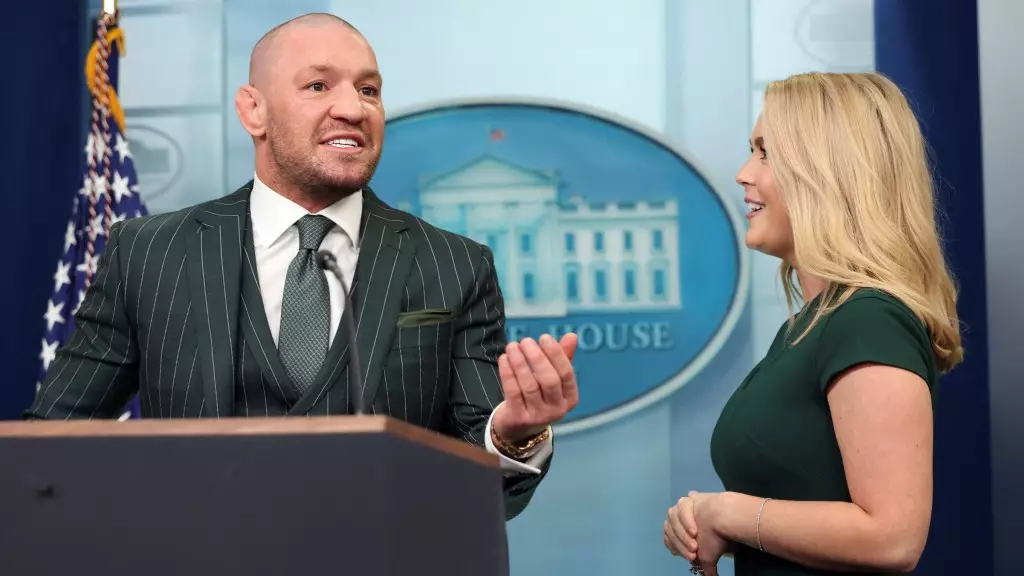Conor McGregor, once the paragon of the UFC and a figure synonymous with greatness, is now angling for political office in Ireland. This surprising pivot from the octagon to politics raises eyebrows and prompts an essential inquiry into the motivations behind this drastic career shift. McGregor’s latest statements indicate a focus on possibly running for the Irish presidency, seemingly sidelining his once-celebrated fighting career. After sustaining a devastating leg injury during a match against Dustin Poirier in July 2021, the athlete’s competitive spirit appears to have been overshadowed by ambitions of political greatness—a move that many, including UFC veteran Daniel Cormier, find perplexing.
Reflections on McGregor’s Decline
The irony in McGregor’s approach is significant. At his peak—between 2015 to 2017—he became a household name, securing fame and fortune through a combination of brash persona and remarkable fighting prowess. Now, Cormier posits that McGregor’s statements of “greatness does not rush” do not inspire confidence for his return to the sport. Instead, they reveal a departure from the very urgency and determination that made McGregor a formidable competitor. Cormier’s analysis carries weight; it sparks questions regarding whether McGregor still harbors the relentless drive that characterized his early stardom. Without that hunger, the likelihood of returning to form grows slim, leaving his legacy hanging in the balance.
Public Perception and Political Aspirations
McGregor’s intentions to enter politics do not seem to resonate with the Irish public, as Cormier notes a sentiment of disdain toward the former fighter. The ubiquitous question emerges: Why would McGregor believe he has enough support to pursue this path? The idea of him as a politician strikes some as a superficial attempt to capture attention—a notion that Chael Sonnen emphasizes by referring to McGregor’s behavior as reminiscent of an addiction. This portrayal raises profound concerns about the nature of celebrity culture and its intersection with political ambition. Is McGregor simply seeking new avenues for his notoriety, or is there a deeper, genuine intention behind his political ambitions?
The Irony of Fame and Relevance
The landscape of mixed martial arts is littered with fallen champions, and McGregor’s potential political career seems to echo this trend. Once a figure who challenged the status quo within the UFC, his journey into politics seems almost antithetical to the values he once embodied—a striving fighter unwilling to back down. Cormier’s disbelief in McGregor’s political aspirations highlights a larger commentary on the fleeting nature of relevance, particularly for athletes whose identities are so tightly woven with public perception.
McGregor’s complex relationship with fame and notoriety raises important questions: Does he genuinely care for the political cause, or is this merely an impulsive step towards preserving his public image? As he continues to navigate this transition, the intersection of celebrity, politics, and public perception creates an intriguing narrative—one filled with immense potential for both triumph and futility.

